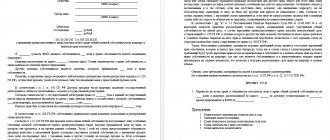You can be the owner of the whole house or its share. When you receive only part of the real estate, you are its owner at the same time as other people. Each of you receives the right of common ownership. It is enshrined in the Civil Code. The same legal document specifies that such property can be shared.
To become the real owner of your share of the house, you must register it as property. Only after completing this procedure will you be able to dispose of the property as you wish. We will tell you how to arrange everything quickly. If you have difficulties obtaining the documents necessary for registration, we advise you to seek help from qualified lawyers.
Do you want to figure it out, but don’t have time to read the article? Lawyers will help
Entrust the task to professionals. Lawyers will complete the order at the cost you specify
291 lawyers on RTIGER.com can help with this issue
Solve the issue >
Real Estate Sales Laws
- Civil Code of the Russian Federation (Civil Code of the Russian Federation) . Chapter 16 is devoted to the use of common property. Article 245 stipulates that each owner has the right to individually dispose of his part of the property (sell, donate, bequeath).
- Federal Law No. 218-FZ of July 13, 2015 “On State Registration of Real Estate” . Article 42 considers the situation when property is in common ownership and describes the possibility of selling part of a house, apartment or land plot.
- Resolution of the Supreme Council of the Russian Federation 02.11.1993 No. 4462-1 “On the procedure for introducing into force the fundamentals of the legislation of the Russian Federation on notaries . Article 5 talks about the peculiarities of the work of a notary certifying a transaction.
Registration of land ownership, if the house is in shared ownership, through the court
If land users who own shares of the plot cannot agree on all issues related to the use of land among themselves, then they need to submit a statement of claim containing a demand for the allocation in kind of part of the land ownership, residential premises or buildings erected on the territory, to the judicial authority.
The court will make a positive decision if it is possible to organize a separate exit, and this procedure will not damage the supporting structure. In addition, the court will distribute the costs associated with the reconstruction of the residential premises between its owners, based on the size of their shares, and will also issue a resolution according to which the common property will cease to exist.
Was the Recording helpful? No 74 out of 94 readers found this post helpful.
What is the difference between a part of a house and a share of a house?
Sometimes home owners do not think about the legality of disposing of their own property and do not know their rights and obligations, which differ depending on the legal status of the property. However, having come to grips with the issue of selling the house, the owner learns that a share is much cheaper than a part. What's the difference?
If a share of a house is being sold, the object of the purchase and sale transaction is a share in the common property, and if part of a house is being sold, the object is physically separate real estate.
A share of a house can become a separate part of it only if a number of conditions are met:
- The part can be separated physically . If the property contains, for example, 1/15 of 45 m2, it will not be possible to allocate a separate room for living.
- The allocated part must comply with sanitary and technical standards for residential premises and be suitable for living.
- The part must belong to the category of real estate , and in accordance with Art. 130 of the Civil Code of the Russian Federation are objects whose movement is impossible without disproportionate damage to their purpose.
- When separating the premises, the rights of other owners must not be violated .
Often separation occurs when a separate entrance to the house is arranged and the procedure for using the property is established. For such a premises it is necessary to issue a technical passport and register the object with the cadastral register. Afterwards, you can sell part of the house without the consent of the co-owner.
Owning a share of real estate as an owner, you can dispose of it without allocating it in kind. For such property, the remaining owners of the house have the right of first refusal. You cannot sell a share without notifying others about it.
In case of sale, the physical part of the house is not allocated. The transaction reflects the transfer of property in a shared ratio.
Share or room
- Registration at place of residence. The owner of the room has the right to register himself and register any other citizens in his living space, even if they are not his relatives. The owner of the share can register in the apartment himself and register minor children, if the size of his share is not too small. To obtain registration for other citizens, it is necessary to obtain consent from all neighbors.
- Payments for housing and utility services. As the owner of the room, you need to make payments on bills exclusively for your property and space, since when allocating a share in the room, financial and personal accounts are separated. As the owner of a share, you will have to pay not for the territory actually occupied and the utilities consumed, but for the officially assigned share in the documents.
- The difference between whether a share or a room in an apartment is a property is important for those who want to get a bank loan against collateral. So, for example, a room can easily be used as a collateral order, but if a share is counted as acceptable collateral, then most likely the bank will provide a loan at inflated interest rates and on unfavorable terms.
Selling Features
The legal concept of “share” is not associated with living space, which can be designated as a room. A share is considered to be the right to use and dispose of a certain area of a house and land.
According to Art. 246 of the Civil Code of the Russian Federation, the owner has the right to separate from the general mass and sell his share as part of a purchase and sale transaction . It is not at all necessary to sell the share to other co-owners - you can find a third-party buyer. However, for this you will have to take into account the principle of pre-emptive right of purchase.
Important rules:
- The owner has the right to sell his share even without the consent of other owners of the residential building and land.
- Along with the residential building, the deal includes the land plot under the house and, if desired, the adjacent territory - in accordance with the size of the share.
- Co-owners of the house have the right to be the first to buy out their share - the right of first refusal. The seller's responsibility is to notify all shareholders of the sale and, if one of them agrees to the price and terms, the parties can enter into a purchase and sale agreement.
- Co-owners lose their pre-emptive right to purchase a share 30 days (month) after notification of the transaction. Failure to respond is considered a reluctance to purchase part of the housing and land.
- Registration of transactions with common property requires a notarial form.
Please note that the sale of a share does not involve the sale of a room, kitchen, living room or hallway. It must be borne in mind that a share cannot be compared with a housing equivalent - it is just a property right. Consequently, the price of a share is much less than the cost of a single room. The owner has the right to allocate a share in kind, i.e. transfer to a residential premises - with a separate entrance, kitchen, bathroom and other parts of the housing (Article 252 of the Civil Code of the Russian Federation). According to lawyers, this is an excellent option to increase the price of the property and simplify the paperwork.
How to determine the share of a land plot in common shared ownership
If one of the owners of the immovable property demands the release of part of the property belonging to him, then his share will be calculated based on a fractional ratio or percentage. There is also the possibility of purchasing shares owned by others. In this regard, a citizen’s share in joint property can be changed up or down.
The share of the plot of land on which a residential building with several owners is built is calculated based on the shares of citizens who own the house. The minimum size of established plots specified in the legislation of the Russian Federation is also taken into account.
In cases where a residential property has several owners, it is registered as shared ownership. To do this, divide the plot in kind. If it is impossible to find out the boundary points of two plots, order land surveying work, and then re-issue the cadastral diagram and passport.
It is possible to carry out official registration of property with the Rosreestr authorities only after the boundaries of the real estate have been established. It is also possible to divide land ownership into several independent plots.
The seizure of a share of property belonging to one of the owners can only be carried out if this procedure does not cause irreparable harm to the property. This requirement means that after allocating a share, the property can be used in accordance with its intended purpose, and its value will not decrease. During the seizure, the rights of other citizens must also not be violated.
It is possible to withdraw a share of property only if it is permitted to allocate part of the allotment in kind.
After the procedure of dividing the plot into separate plots, shared ownership as such ceases to exist. From one large plot of land, several smaller landholdings are formed, each of which the owner has the right of separate ownership.
Is it possible to register the purchase and sale of a share in a house without land?
The difference between a residential building and an apartment is that the object is located directly on the land plot. An apartment can be sold separately, while a house can be sold together with a plot of land.
The house and the plot on which it is located are inseparable objects. A citizen cannot sell a house or a share in it, but not sell a plot.
In this case, a share of the plot can be sold separately from the housing. To do this, it must be allocated to a separate plot and registered with Rosreestr.
The share in the land plot must correspond to the share in the residential building. If a citizen sells ½ share of a residential premises, then ½ share of the land plot must be attached to it.
The law provides for a number of exceptions:
- A ban has been imposed on the turnover of the site.
- The land plot is leased, owned by the right of lifelong inheritable ownership or use.
- The size of the share in the house does not allow it to be allocated in kind.
- If the allocation of a plot creates obstacles to free exit and entry to the land where the house is located.
Important! If a share of land is sold separately from the house, it is necessary to carry out land surveying and make changes to the cadastral passport. In practice, this situation occurs extremely rarely.
PRO new building 7 (499) 703-51-68 (Moscow)
- Written requests from all owners. The owner in the application indicates his right to separable square meters of the house, and the remaining owners indicate changes in the size of the common part of the property.
- Documentary evidence of ownership of real estate from each owner. This may include a deed of gift, a home purchase agreement and other papers.
- An agreement concluded between owners for the alienation of a share of housing in kind.
- Technical passport for a new part of the property in the house.
- A document confirming payment of the state fee.
- Civil passports of other owners. If trusted persons are present instead, then powers of attorney executed by a notary must be presented.
Conditions for selling part of the house
Taking into account the situation, the rules for the sale of real estate shares are changing. There are special features in cases where it is owned by only one owner or spouses. Difficulties sometimes arise if a house or apartment belongs to several individuals.
With one owner
This is the best case. The home owner can independently decide what and to whom he wants to sell. The owner needs to find a buyer, determine the part of the housing that will be sold, and prepare a purchase and sale agreement.
Jointly acquired by spouses
Such property is common property that cannot be sold without the consent of the other party. If one spouse undertakes this, the transaction can easily be contested in court.
Exceptional cases that do not require permission:
- the couple entered into a marriage contract regulating their rights to property.
- recognition of a husband or wife as incompetent;
With several owners
Based on Article 250 of the Civil Code of the Russian Federation, co-owners have a preemptive right to acquire parts of the property being sold. Selling a share of a residential building to a third party is permissible only with their consent. This is possible when shareholders refuse to purchase and do not show interest in it.
Is it possible to sell a share in a house without land?
The general rule is that the house and the land underneath it are a single piece of real estate. In order to sell a share of a house, a land “segment” is also included in the transaction - in accordance with the size of the share or according to the terms of the agreement of the owners. The same applies to the purchase and sale of land: if it is not allocated in kind (Article 273 of the Civil Code of the Russian Federation).
However, there is an exception to the rule - it is enshrined in paragraph 4 of Art. 35 of the Land Code of the Russian Federation, which stipulates two grounds for selling a house and land separately:
- if part of the house cannot be allocated in natural size along with the area under it;
- if the plot is withdrawn from state circulation.
Theoretically, it is possible to sell a share in a house without land, but this happens extremely rarely and requires demarcation of the territory.
Let's look at the features of selling a house without land:
Case No. 1 If you want to sell a share of a house without land, register the plot as a separate piece of real estate - put it on cadastral registration in Rosreestr (Clause 1, Article 37 of the Land Code of the Russian Federation).
Case No. 2 If the land serves as a driveway/access point to the house, it cannot be allocated in kind - you will have to sell the house with the land.
Case No. 3 If you agree with other co-owners and delimit the land area into two independent plots: the land under the house and the “free” land, the owner can sell the share of the house without the “free” land.
/* vacant land is land that is not located under the house and is registered in the cadastral register as an independent property.
Case No. 4 If the house is in common ownership, and the land is in lease and/or perpetual use, the transfer of ownership when selling a share is carried out without land. Let us clarify that the purchase and sale agreement will contain a clause on the status of the land plot (for example, if it is leased, on the assignment of the lease right).
We conclude: if the plot is not registered as a separate object of sale and purchase, you will not be able to sell a share in a house without land (see “How to register a share of land as private property”).
Example:
The residential building was shared ownership by the aunt and nephew - they each owned ½ of the house, and the land plot belonged to the municipality. My aunt wanted to privatize the land in order to sell the share of the house with the land. The nephew was against privatization because... he didn’t want to pay property taxes; he also didn’t want to buy back part of the housing. BTI experts recognized the house as indivisible, so the aunt could not allocate a share in kind for the purpose of sale. She turned to lawyers who told her what to do. It turned out that it was possible to sell ½ of the house without privatizing the plot. According to Art. 271, as well as Art. 552 of the Civil Code of the Russian Federation, the right to use land when buying and selling part of a residential building passes to the new owner. The conditions for using the land do not differ from those of the previous co-owner of the plot share. Lawyers advised to include in the purchase and sale agreement a clause regarding the transfer of ½ of the house without land. The buyer contacted the local administration and re-registered the right to use the municipal “segment”.
How to transfer 1/2 share of a house to 1
If the question sounded like transferring a share in a house to an apartment, then it would be understandable. Otherwise I don’t see any difference between 1/2 share and 1/2 part
▪ The disproportion between the property allocated in kind to a participant in shared ownership on the basis of this article and his share in the ownership right is eliminated by payment of the appropriate amount of money or other compensation.
▪ If the participants in shared ownership fail to reach an agreement on the method and conditions for dividing the common property or the allocation of the share of one of them, the participant in shared ownership has the right to legally demand the allocation in kind of his share from the common property.
| Article 252. Division of property in shared ownership and allocation of a share from it |
The house has 2 different entrances, the sewage system, water supply, heating and gas supply are different. The owners are not related.
Payment of compensation to a participant in shared ownership by the remaining owners instead of allocating his share in kind is permitted with his consent. In cases where the owner’s share is insignificant, cannot be realistically allocated and he does not have a significant interest in the use of the common property, the court may, even in the absence of the consent of this owner, oblige the remaining participants in the shared ownership to pay him compensation.
▪ Property in shared ownership can be divided between its participants by agreement between them.
Read other lawyers' answers:
- Cause of Disability 11 How to Pay
- How to Finish University Fast
- What is the deadline for the execution of a court decision by bailiffs?
- How to Restore an Entry in the Work Book
- How to Apply for MTPL If the Owner Died
Dear colleagues, I wish each of us to hold high the title of lawyer, unswervingly adhering to the principles of impartiality and objectivity!
How to sell a share in a house with land?
So, the share can be sold to one of the co-owners or to a third party, depending on the life situation. Often, the transaction involves heirs who do not benefit from sharing housing with the relatives of the deceased. The best option is to offer your relatives to buy out the share. If everyone knew how to negotiate with each other, questions would not arise - but more often the opposite happens: the share is not needed, the co-owners create obstacles, the price does not suit anyone, the documents are outdated.
How to sell part of a house in shared ownership if the other owner does not mind
The law does not establish the need to obtain the consent of co-owners when selling a house or land. The only restriction is the provision of a pre-emptive right of repurchase.
The preemptive right refers to the need to notify the co-owner in advance and offer a buyout on the desired terms. If he does not give consent within 30 days, then the object can be sold to third parties, but under the same conditions.
If the conditions change, the co-owner has the right to challenge the transaction and transfer the right to purchase to himself. But the law does not prohibit a co-owner from selling a share.
Therefore, it is possible to sell part of a house in shared ownership with or without land, regardless of the consent of the co-owners.
Algorithm of actions
The procedure for selling a house share consists of the following steps:
- Preparation of documentation.
- Coordination of the sale with co-owners.
- Receiving a written refusal of the ransom.
- Removing residents from registration.
- Drawing up a preliminary agreement with the buyer.
- Certification of the contract by a notary.
- Signing the contract.
- State registration.
When setting the price for a share in a house, it is necessary to note that the share costs 20% less than the same share in the house as a whole. Therefore, the seller will initially be a loser.
In addition, it is difficult to find a buyer for the share from third parties. Often the sale of shares is carried out between co-owners.
Documentation
To implement the transaction, you must provide the following documents:
- passports of both parties to the transaction;
- original documents on registration of property rights (extract from the Unified State Register of Real Estate);
- cadastral passport for the house, land;
- an extract from the tax service confirming the absence of tax debts;
- a certificate of family composition and absence of debt on utility bills;
- consent of all shareholders to carry out the transaction.
According to Art. 550 of the Civil Code of the Russian Federation, a contract for the sale of real estate is concluded in writing.
The law allows the conclusion of a transaction without notarization, however, the new owner may have problems registering property rights. According to Art. 42 of Law No. 218-FZ, transactions for the alienation of shares in common property rights are subject to notarization . Also, the legality of the transaction must be confirmed by a notary if the seller of the share is a minor or a citizen with limited legal capacity.
Direction of notification
Notification Requirements:
- executed in writing;
- includes the final price for the share;
- contains date;
- includes complete details of the property being sold.
The notification is sent in a manner that allows the fact and date of delivery to be recorded. Methodological recommendations for notaries suggest using personal delivery, telegram or notarial notification for this purpose.
If the co-owners do not agree to the redemption within 30 days, the share can be sold to third parties. If a written refusal certified by a notary is received earlier than the specified period, the owner can complete the transaction earlier.
Sample notification of the second owner
It can be drawn up independently or with the participation of a notary. The notice takes the form of a written document indicating the terms of the transaction. The co-owner indicates the redemption price he asks for his part of the building.
The price should not be higher than that which the seller will set to third parties in the event of refusal by all owners.
Sales procedure
Since the subject of the transaction is a share in a residential building, notarization is a prerequisite. Therefore, the execution of the contract can be entrusted to a notary. Regardless of the registration method, payment to the notary for technical and legal services will be collected in full.
Starting from 2021, the responsibility for transferring the contract for the sale and purchase of a share in a residential building to Rosreestr rests with the notary. Therefore, the parties only submit an application and a receipt for payment of the state fee.
Costs and taxation
The costs of completing a transaction include not only payment for the share.
Main costs when completing a transaction
| No. | Types of expenses | Price |
| 1 | Preparation of documentation (registration of a new registration certificate and other documents) | Depending on the number of documents and the region of application |
| 2 | Notarial services | Depending on the region (from RUR 5,000) |
| 3 | Notarization | 0.5% of the transaction amount |
| 4 | Income tax | 13% of the transaction amount (paid by sellers who owned the property for less than 3 years) |
| 5 | Registration in Rosreestr | 2,000 rub. |
Deadlines
The registration period depends on the specific situation.
General terms:
- registration of a technical passport at the BTI - the minimum period is 14 days;
- sending a notification - depending on the distance from the seller;
- The notice is valid for 30 days from the date of delivery;
- registration of a preliminary agreement – 1 day (with preliminary agreement on the basic conditions);
- preparation of the main contract – 1 day;
- signing and notarization – 1 day;
- registration in Rosreestr – from 7 days.
Nuances
It is important that the content of the agreement reflects the interests of both parties to the transaction. The document must indicate:
- who are the parties to the contract;
- subject of the contract;
- the cost of the object and the procedure for settlement with the buyer;
- characteristics of the house share: location, area, cadastral number, details of the certificate of ownership, purpose of the land plot;
- about the absence of claims to property from third parties;
- on the legal capacity of the parties to the contract.
Each copy of the agreement must be signed by the parties with a transcript.
Arbitrage practice
When selling a share in a house, lawsuits are most common if the citizen has not notified the co-owners. Citizens may avoid receiving notification for a long time, thereby preventing the sale. In such a situation, you can apply to the court to remove obstacles to the sale of the property.
Example. Citizen M. applied to the court to remove obstacles to the sale of a share in a residential building. The ex-husband lived in the house with the new family, refused to pay compensation for the ex-wife's property, and also avoided receiving notice. Each of the former spouses owned ½ share of the house. During the process, the man explained that he did not have the financial ability to pay compensation. He also cannot sell his share to the plaintiff, since the house is his only home. The court satisfied the woman's demands and recognized the man as having received notice of the sale of the share.
A prerequisite is that the seller acts within the law. In practice, illegal methods of selling shares without the consent of co-owners are common. As a result, transactions may be challenged in court.
Example. Citizen L. served his sentence in prison. After his release, he returned to the house, which he owned as shared property with his wife (½ share). The wife managed to dissolve the marriage and did not want the man to live in the house. To sell his share, the ex-husband gave a third party a 1/100 share in the house. After which, he finalized the sale deal with the new owner. The woman found out about the deal only when new tenants moved in. She went to court to recognize the gift transaction as sham. The court satisfied the requirements. In addition, the woman wrote a statement to the police about her ex-husband’s fraudulent activities.
If other owners refuse to buy a share
In practice, other home owners do not always have the financial ability to buy out the share. In this case, a waiver may be issued, which will allow the seller to proceed with the sale without waiting for the end of the thirty-day period.
Essentially, this option makes it possible to sell a share in the house with the consent of the owners. In this case, you should take a responsible approach to filling out the refusal and avoid ambiguous wording in the document.
If other owners are against
Disagreements between co-owners can lead to a refusal to buy out the share and even alienation of part of the housing to third parties. Many will probably think that there is no way out - but there are two ways to sell a share in a house with land. And even without the consent of other owners.
Where to start the process?
A residential building in common ownership is divided between several people. They have a pre-emptive right to purchase each other’s shares - and we are talking about paid (paid) transactions, which include purchase and sale.
If you intend to sell a share in the house, notify the other owners. And not selectively, but all at once, even if they are absent from their place of residence.
The notice is sent by registered mail or delivered personally to each shareholder. The opposite answer could be:
- the housemates sent an official notarized refusal;
- lack of response - either verbally or in writing.
After only 30 days, you can begin searching for a buyer from third parties, even if the equity holders have not contacted you.
Legal options for selling without the consent of other owners
There are difficult situations when it is not possible to reach an agreement - one of the shareholders can artificially delay the process or block the transmission of notification to him.
In addition, difficulties arise with those owners who do not live permanently in the apartment and have not left their contact information.
Where should I look for them in this case in order to notify them about the possibility of priority purchase of the apartment?
Fortunately, there are completely legal ways to sell your share.
Firstly, you can issue a deed of gift.
Such a transfer of ownership of real estate to a third party does not even require notifying everyone else of your intentions.
But be careful! The deed of gift under which the purchase and sale transaction is carried out requires additional guarantees for the payment of funds.
As you understand, legally in this case the property will be donated, but in fact it will be purchased.
To receive funds without delay, you can involve an intermediary in the transaction, for example, arrange a transfer through a safe deposit box.
Secondly, the consent of shareholders will not be required if part of the apartment is registered as collateral.
In case of non-payment of loan funds, the bank will be able to take back the share.
The Civil Code of the Russian Federation regulates the case with creditors differently - even if shareholders demand recognition of their priority right through the court, the transaction will remain part of the agreement between the creditor and the borrower.
Thirdly, the shareholder can go to court to force the alienation of part of the property.
This action is suitable for those who cannot find the shareholder, believe that he is deliberately hiding so as not to receive notification, or have indicated a desire to exercise the priority right, but have not done so.
Method No. 1
The first way is to find a buyer not from among the shareholders, if the latter do not want to participate in the buyout. Don’t forget about the right of pre-emption – the principle will have to be observed.
Use the following instructions:
- Draw up a notice of sale of the share to all co-owners.
- Go to the post office, pack registered letters, take receipts for their dispatch.
- Wait for bouncebacks or wait 30 days.
- Place an advertisement for the sale of a share in the media: the Internet, newspapers, bulletin boards, word of mouth.
- Discuss with the buyer the terms of the transaction and the procedure for transferring money.
- Rent a safe deposit box.
- Complete and notarize the purchase and sale agreement + draw up a deed of transfer.
- Register ownership through the MFC in Rosreestr.
- Receive payment from the buyer through a “safe channel” - through the bank.
- Transfer part of the housing and land to the buyer.
There are no special differences from the previous method, but you need to take into account the requirements of Art. 250 of the Civil Code of the Russian Federation, because otherwise the deal is easy to challenge.
Method No. 2
It is not at all necessary to wait for consent/refusal from the co-owners. The legal owner of the share can transfer it to a property object - residential premises. This is possible by allocating a share in kind on the basis of Art. 252 of the Civil Code of the Russian Federation.
Procedure:
- Consult with other co-owners (if they agree, you can proceed to allocating a share in kind; if you do not agree, go to court).
- Invite cadastral engineers.
- Find out if it is possible to technically renovate your home?
- Create a separate living space within your share.
- Order a technical plan, and then register the objects with cadastral registration in Rosreestr.
- Receive an extract from the Unified State Register of Property Rights.
- Find a buyer, enter into a purchase and sale agreement for the share of the house and land.
- Have the contract certified by a notary.
- Register the transaction with the MFC or Rosreestr.
An advantage can be considered the sale of a natural share in the form of an independent object. The owner has the right to set a higher price - a market indicator. The downside is the technical difficulties and duration of the procedure. Not every residential building can be divided into autonomous and independent sections without damaging the entire building. But you can demand monetary or other compensation from co-owners.
Documentation
So, if the second owner is against the sale, wait 30 days and then look for a buyer on the side. The second option is to use the right to allocate a share in kind, i.e. divide the living space and become the owner of a separate part.
List of documents for registration:
- passports;
- several copies of the purchase and sale agreement;
- notification of delivery of a letter with an offer to sell a share;
- official refusal of ransom - certified by a notary;
- extract from the house register;
- certificate of conclusion of the cadastral engineer on the technical feasibility of reorganizing the living space;
- documents for housing and land;
- title papers for real estate;
- extracts from Rosreestr - about the absence of encumbrances, about ownership, about cadastral information, etc.
Review period
According to paragraph 1 of Art. 154 of the Code of Civil Procedure of the Russian Federation, the period for consideration of a civil case is within 2 months from the date of filing a lawsuit. After the decision is made, a writ of execution is issued, explaining the rights and obligations of the parties in relation to the property. Failure to comply with the instructions may result in enforcement action by the FSSP.
Subsequently, shareholders can sell their property in the usual manner without the participation of the former owner who does not agree with the sale.
If it is not possible to resolve the issue through the court, there is only one way out - to wait until the owner of minor property wants to purchase the rest or find a buyer for the existing shares.
If one of the shareholders disagrees with the sale of the house, there are several options for solving the problem: dividing the property in kind; prove in court that the other shareholder does not fulfill the obligation to maintain the house in proper condition and does not pay for utilities; find a buyer for the share.
In court, you can achieve recognition of the share as insignificant and pay compensation to the owner. When preparing documents, a sales agreement or a claim in court, you will need the help of a lawyer. Are you faced with such a situation and want to get out of it with maximum benefit for yourself? Contact a specialist at ros-nasledstvo.ru right now, consultation is free
Price
The main costs are the same as described above.
Additionally you will have to pay:
- state duty for filing a property claim – from 300 rubles to 60,000 rubles, depending on the price of the share;
- ordering and production of cadastral documents (house + land) – from 10,000 to 50,000 rubles;
- other certificates and statements – from 500 rubles and above.
In short, the costs are significant: the amount can reach up to 70,000 rubles.
How to sell a share if the second owner is a minor?
Obviously, selling part of the house and land does not raise any questions from the perspective of adults. And it’s a completely different matter when a minor is involved in the transaction - a minor under 14 years old or a teenager from 14 to 18 years old. What should I do?
The purchase and sale of housing and land is considered a serious transaction. Minor children cannot participate in it independently, since their legal capacity is limited by age. If the second owner is a child, parents or guardians act on his behalf (Clause 1, Article 28 of the Civil Code of the Russian Federation).
At the same time, it is necessary to obtain the consent of the guardianship and trusteeship authority (TCA). Alienation of shares of minors is a huge risk. There is a possibility of leaving a child homeless. Therefore, the law requires you to contact the PLO commission.
The desire to sell the children's share obliges the parents to provide the child with living space in a new house (mortgage housing, apartment of parents, grandparents). It is important that the new share is not less than the old one, otherwise the guardianship authorities will block the deal.
Parents must meet with the OPP inspector, provide documents for old and new housing, write an application and submit an application to the department of the guardianship authority. A return response will be given within 14 days : if the commission approves the transaction, you can allocate the child a share in the new house and begin selling the old one. A negative decision leaves no chance even for a sale through the court.
What you need to know:
- A co-owner can sell a share in the house along with the land.
- The remaining co-owners have priority in the redemption - the pre-emptive right. First you need to make an offer to them.
- Notification of the sale of a share is made in writing. If you act through a notary, the specialist will draw it up himself. You can write the notice by hand and mail it to the co-owners with return receipt requested. If you do not send it, it will be considered a violation of order.
- If one of the co-owners agrees with the proposed price, the deal is concluded with him.
- In case of refusal or after 30 days, the share can be sold to third parties.
- One option is to allocate a share in kind (living space in the house). There is no need to notify co-owners. The seller has the right to immediately find a buyer and conclude a purchase and sale agreement with him.
- If children are involved in the transaction, the consent of the guardianship authorities is required. The child is allocated a share in the new apartment.
- Transactions with shares require the involvement of a notary.
How does the sale take place?
To sell your share in an apartment, you must independently find a person who wants to buy it. This can cause difficulty, since we are not talking about the whole apartment, but about part of it. Once you have found someone who will buy part of the house, you should negotiate all the terms of the deal. In particular, the subject is a share, and its size is clearly indicated. In addition, the property is described in detail. The value of the property and other conditions that are important to the participants are also stated.
Important! When you draw up a preliminary agreement, the remaining owners may not participate in it. The agreements that you have reached must be reflected in the draft contract, which will provide both you and the buyer with additional guarantees. If you have agreed on all the terms of the transaction, you will need to notify the other owners about this.
Costs of selling a share in a house
| Service | Cost, rub. |
| Obtaining an extract from the Unified State Register of Real Estate | 400 |
| Registration of refusal of other owners through a notary | |
| When sent by mail | 2000–2500 |
| Reassurance in the workplace | 1000–1500 |
| State duty for registration of a purchase and sale transaction | |
| When applying in person | 2000 |
| Registration through State Services | 1400 |
Sale of part of a house with land
The procedure includes the following steps:
- Search for a third-party buyer if refusal from other owners is received.
- Preparation of two sales and purchase agreements - separately for part of the house and for the land.
- Collection by the seller of a standard package of documents.
- Signing of the contract by the parties and notarization of the transaction.
- State registration of the procedure for changing the owner of real estate.
- Transferring money from the buyer, receiving a receipt.
The nuances of selling land are that the owner can first separate it from the common property. This operation is not possible in all cases. For example, if the site can only be approached from one side, then nothing will come of it. Secession will require special surveying with the establishment of boundaries and new property rights. As in the case of residential real estate, the consent of all shareholders will be required.
Sources
- https://sovets24.ru/2881-kak-prodat-dolu-v-dome-i-cast-zemelnogo-ucastka.html
- https://ros-nasledstvo.ru/kak-prodat-dolyu-v-dome-bez-zemli/
- https://law-divorce.ru/kak-prodat-dolyu-v-dome-s-zemlej/
- https://allo-urist.com/kak-prodat-dolyu-v-dome-bez-zemli/
- https://law-divorce.ru/kak-prodat-dolyu-v-dome-bez-zemli/
- https://rtiger.com/ru/journal/kak-prodat-dom-v-dolevoi-sobstvennosti/
- https://zhivem.pro/kvartira/prodazha/doli/bez-soglasiya-drugih-sobstvennikov.html
- https://kvadmetry.ru/prodazha/doli-v-dome-bez-soglasiya-drugih-sobstvennikov-mozhno-li.html
[collapse]









